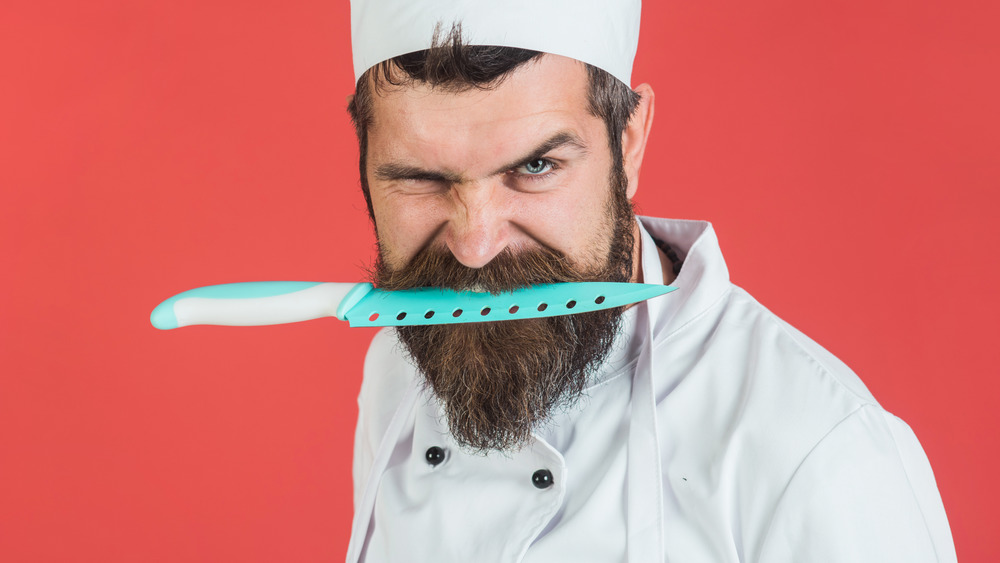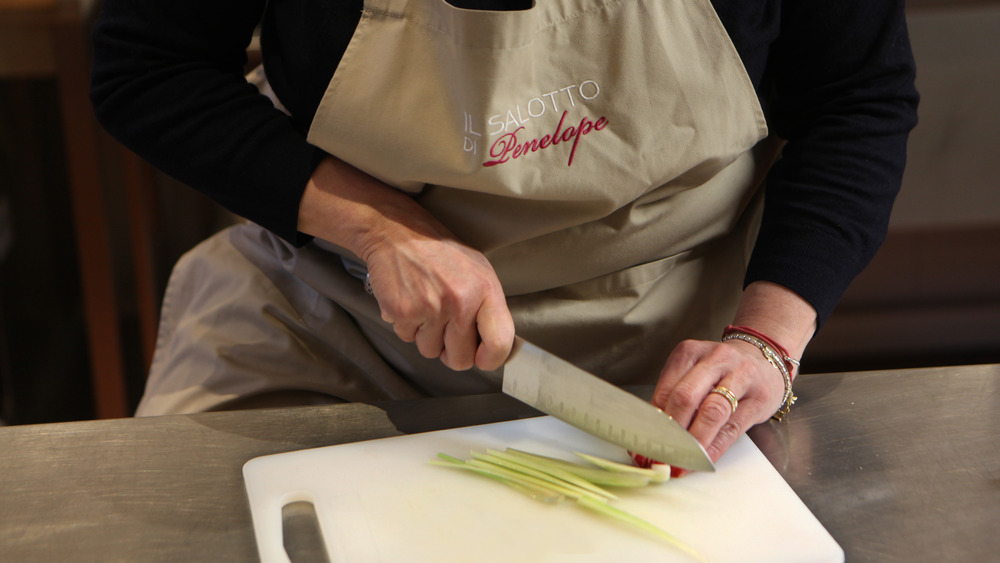The Biggest Mistakes You're Making With Your Kitchen Knives
One old saw in the culinary world, clichéd because it's true, is the saying: "A chef is only as good as their knife." While you'll undoubtedly get better results with higher-quality knives than with the kind of junky cutlery you might pick up in the discount bin, spending thousands of dollars on a set of high-end chef's knives won't do you much good if you don't know how to use them. After all, mistakes are never the fault of the tool, but of the one wielding it.
In search of advice on how to better our knifework, The List went to one of our go-to expert chefs: Frank Proto, Director of Culinary Operations at the Institute of Culinary Education. One of the top tips Proto had for us involved the condition, not the quality, of the knife being used. "While it may sound counterintuitive," he told us, "using a dull blade is actually much more dangerous than using a sharp one."
He explained that if your knife isn't sufficiently sharp for the task at hand, you'll need to use more force when cutting, and if the blade slips you could cut yourself pretty deeply. If you want to test your knives for sharpness, try cutting a piece of copy paper. Clean cut = good to go; torn edges = serious need of sharpening. You should probably invest in a decent sharpening stone, but for a quick fix you can always sharpen your knife with a coffee mug.
Other knife no-nos
Using a dull knife isn't the only thing you might be doing wrong. In fact, Proto warns that if you are using the wrong cutting board, not only won't this help your cutting come out as it should, but it also might even dull your knives. He recommends plastic, rubber, or wooden boards, but warns: "never cut on glass or metal." Another mistake you might be making that could result in duller knives would be to wash them in the dishwasher. Proto says that knives (other than those kind of butter knives that come in sets of silverware) are hand-wash only, explaining that "otherwise they can lose their ability to hold a sharp edge."
One more thing you should do to up your kitchen knife game involves using the right knife for the right task. Paring knives should be used only for paring or peeling, while chef's knives are only for chopping rather than boning or butchering. Machetes, of course, should be restricted to going on horror-movie rampages slicing open coconuts or watermelons. You get the point... speaking of which, your knife's pointy part should probably be inserted into a protective sheath or knife block before you stab yourself.

